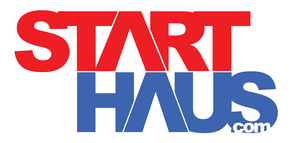Blog
-

Diary of a Non-Wimpy Ski Racer
Journaling isn’t just for detectives like Nancy Drew (and diaries aren’t just for wimpy kids like the wimpy kid that kept a diary). Writing, journaling, diary keeping—whatever you want to dub the pages soaking the ink of your thoughts—is rad. And if you want to be numero-uno down the road, a training log is a great key to long-term success. If you track it, you’ll always be able to go back to it. If you end every training session with a journal entry, you’ll begin to recognize patterns, and solve the issues when you hit a plateau
Writing is also a good way to problem solve. Ski racing is full of confusing, convoluted lingo. Believe me, there were many times when I had no idea what my coach was asking of me. Don’t feel ashamed to ask questions, and in your journal, work through those questions. Technical talk is often hard to understand. When you work through a training session in your journal, you may realize, “Hey, I didn’t even know what my coach wanted me to
-

Bro-Ski is for Real
Boy or girl, we’ve all got bros that ski. Pant sagging, goggle gapping, and ski rapping—your bro-ski, man. You know who I’m talking about. It’s likely they give you a hard time for your ski strapping, goggle lens-packing, gate bashing style. And it’s likely you give them a hard time for—well, bro-ing. You love them for their different style, and their argyle one-piece pile.
Truth be told, we have a lot to learn from each other. To ski racers, technique is all discipline of the body. To free riders, technique is all creativity of the mind. Oftentimes, in the world of ski racing, the athlete gets very caught up attempting to travel past a gate the “correct” way. I’ve been a victim of this mindset, and I’ve watched kids ski stagnant trying to force technique. While there are basics to master, in the end, every skier has a different style, a different strength, and travels a different line.
Consider this common scenario: Your coach instructs you to move your hips forward in the transition.
-

The Art of Working Out in the Sun
Exercise is the healthiest thing since broccoli. With that in mind, don’t make a full plate of dryland training so hard to swallow. A dryland training program is all about balance. The aim isn’t to look like Hulk Hogan or strap rocks to your back like Bode Miller. The goal is to maintain a healthy balance of strength, cardio, and power training, all while having fun in the California sun.
Since skiing is an alternative sport in this nation of football and baseball, use alternative ways to train. Don’t think you need to jog and hit the gym every single day for a lift. Not only will you be bored to death, you won’t be prepared for a season of ski racing.
Why not?
Skiing is unpredictable. The elements are constantly shifting, throwing curve balls day in and day out. When you’re carving out a pre-season fitness program, keep the inherent nature of the arc in mind. Making a sweet turn is about strong instincts, quick thinking, and powerful moves. The mountain is
-

Race Ski Testing 101
Seasoned ski racers and ski professionals understand the importance of finding skis that bring out the best of their individual style while mitigating some of the potentially unproductive aspects of their skiing and racing. Ski testing is necessary in order to identify which ski most enhances performance, and Mt. Hood, Oregon is a great place to figure out which race skis to purchase for next season. Below are some key considerations to ensure a productive and accurate ski test.
When is the best time to test 2012 race skis?
In a perfect world, ski testing would be done on winter snow and in winter temperatures. The reality is that next season’s race skis are not typically available to test until April or May. As a result it is difficult for the Eastern and Midwestern skiers to test on home turf. In the West you have greater opportunity to test. For example, in California there is still very good snow at Squaw Valley and Mammoth Mountain. For summer skiing, Mt. Hood




